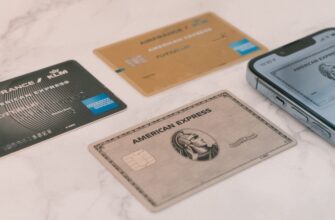Why Safely Buying and Storing Bitcoin Matters
Bitcoin has become a popular investment, but its decentralized nature means security is entirely your responsibility. Hackers, scams, and human error can lead to irreversible losses. Follow this guide to minimize risks when buying and storing your Bitcoin.
Step 1: Choose a Reputable Cryptocurrency Exchange
Start by selecting a trustworthy platform to purchase Bitcoin:
- Research Security Features: Opt for exchanges with two-factor authentication (2FA), cold storage for funds, and insurance policies (e.g., Coinbase, Kraken).
- Verify Regulatory Compliance: Ensure the platform follows Know Your Customer (KYC) and Anti-Money Laundering (AML) regulations.
- Check User Reviews: Avoid exchanges with a history of hacks or withdrawal issues.
Step 2: Set Up a Secure Bitcoin Wallet
Never leave Bitcoin on an exchange. Use a wallet you control:
- Hardware Wallets: Offline devices like Ledger Nano X or Trezor Model T (most secure).
- Software Wallets: Mobile/desktop apps like Exodus or Electrum (convenient for small amounts).
- Paper Wallets: Physical printouts of keys (riskier but offline).
Pro Tip: Enable 2FA and write down your recovery phrase on paper—never digitally.
Step 3: Buy Bitcoin Safely
- Enable 2FA on your exchange account.
- Use a strong, unique password.
- Start with a small test transaction.
- Transfer Bitcoin to your wallet immediately after purchase.
Step 4: Store Bitcoin for Long-Term Security
- Keep most funds in a hardware wallet (cold storage).
- Backup your wallet’s recovery phrase in multiple secure locations.
- Avoid sharing wallet details or recovery phrases online.
- Update wallet software regularly.
Bitcoin Safety FAQ
Q: Is buying Bitcoin safe?
A: Yes, if you use regulated exchanges and secure wallets. Avoid phishing sites and unverified platforms.
Q: What’s the best wallet for beginners?
A: Hardware wallets like Ledger offer a balance of security and ease of use.
Q: Can Bitcoin be stolen from my wallet?
A: Only if hackers access your private keys. Never share them or store them digitally.
Q: What if I lose my wallet?
A: Use your recovery phrase to restore access on a new device. Lose the phrase = lose funds forever.
Q: Can I recover stolen Bitcoin?
A: Rarely. Blockchain transactions are irreversible. Prevention is critical.
Final Tip: Stay informed about crypto security trends to adapt to new threats.








